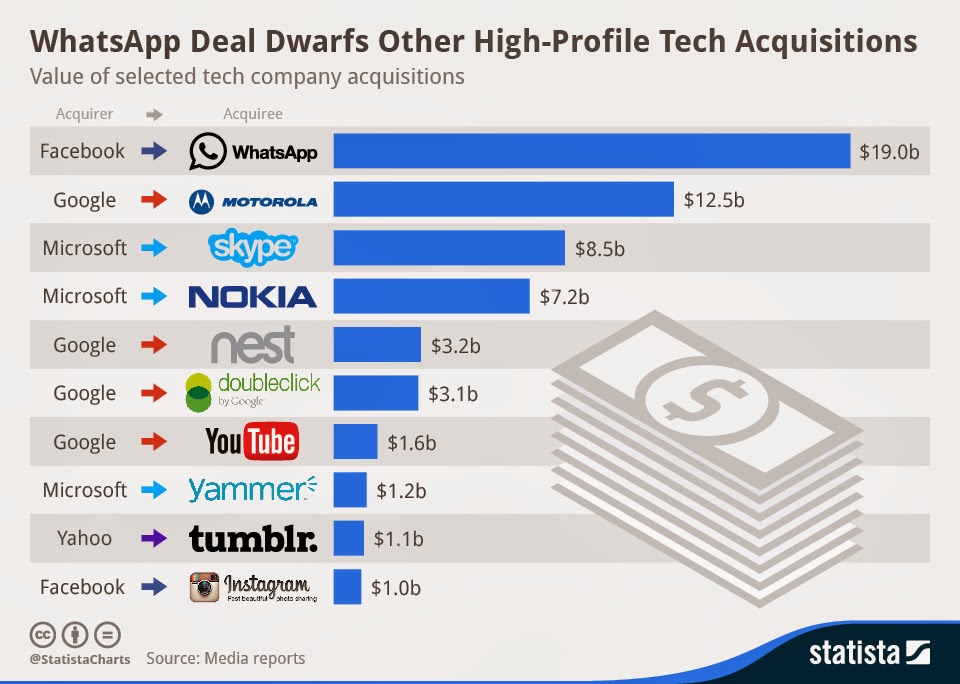http://money.cnn.com/video/technology/2014/02/19/t-facebook-whatsapp-19-billion.cnnmoney/
In a play to dominate messaging on phones and the Web, Facebook has acquired WhatsApp for $19 billion.
That's a stunning sum for the five-year old company. But WhatsApp has been able to hold its weight against messaging heavyweights like Twitter (TWTR), Google (GOOG, Fortune 500) and Microsoft's (MSFT, Fortune 500) Skype. WhatsApp has upwards of 450 million users, and it is adding an additional million users every day.Referring to WhatsApp's soaring growth, Facebook CEO Mark Zuckerberg said on a conference call, "No one in the history of the world has done anything like that."
WhatsApp is the most popular messaging app for smartphones, according to OnDevice Research.
Buying WhatsApp will only bolster Facebook's already strong position in the crowded messaging world. Messenger, Facebook's a standalone messaging app for mobile devices, is second only to WhatsApp in its share of the smartphone market.
Related: 5 key moments that changed Facebook
Similar to traditional text messaging, WhatsApp allows people to connect via their cellphone numbers. But instead of racking up texting fees, WhatsApp sends the actual messages over mobile broadband. That makes WhatsApp particularly cost effective for communicating with people overseas.
That kind of mobile messaging services have become wildly popular, with twice as many messages sent over the mobile Internet than via traditional texts, according to Deloitte. But most of the messaging industry's revenue is still driven by text messaging.
On the conference call, Facebook said it is not looking to drive revenue from WhatsApp in the near term, instead focusing on growth. Zuckerberg said he doesn't anticipate trying to aggressively grow WhatsApp's revenue until the service reaches "billions" of users.
WhatsApp currently charges a dollar a year after giving customers their first year of use for free. WhatsApp CEO Jan Koum said on the conference call that WhatsApp's business model is already successful.
That indicates Facebook bought WhatsApp to add value to its existing messaging services, as well as for the long-term potential of the company.
Facebook bought Instagram for $1 billion in 2012 for similar reasons: As young social network users gravitated towards photo-sharing, Facebook wanted to scoop up what could have eventually become a big rival.
Like Instagram, WhatsApp will function as an autonomous unit within Facebook, with all the existing employees coming in as part of the deal.
Facebook (FB, Fortune 500) said it will pay WhatsApp $4 billion in cash and $12 billion in stock.
WhatsApp's founders and staff will be eligible for for another $3 billion in stock grants to be paid out if they remain employed by Facebook for four years. Koum will also join Facebook's board of directors.
-



